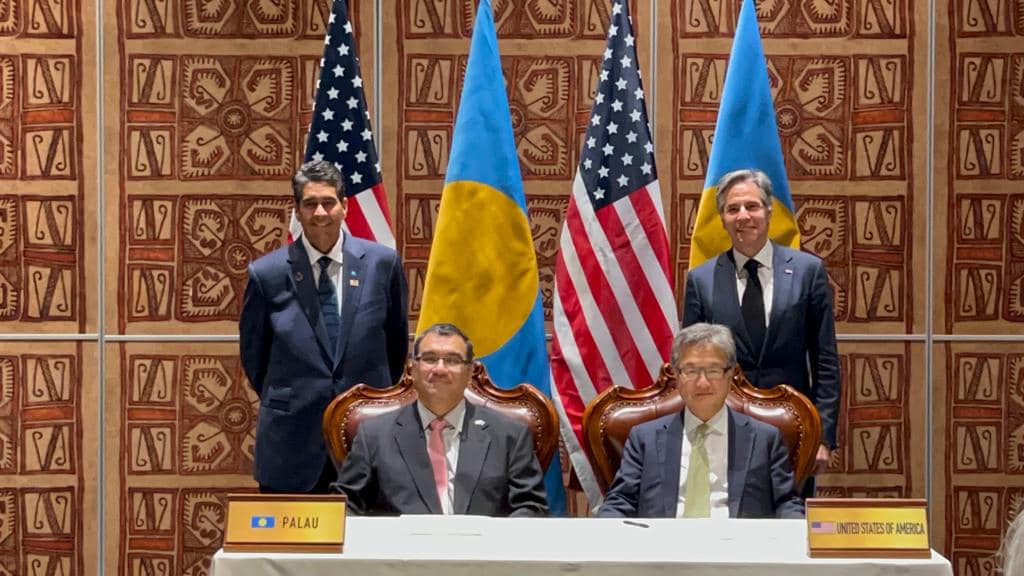The United States and Palau on Monday signed a new agreement under the Compact Free Association, capping two years of tough bargaining over the terms of extended economic provisions that now await congressional action.
“For nearly two decades now, the Compact of Free Association has been a hallmark of partnership,” U.S Secretary of State Antony Blinken said in a statement after the signing ceremony in Port Moresby, Papua New Guinea.
Palau stands to receive US$890 million in economic assistance from the U.S for the next 20 years. The Washington-pledged amount was more than double the price that was initially on the table, Palau President Surangel Whipps Jr said in his State of the Republic Address last month.
The compact’s economic provisions are set to expire next year, but U.S. and Palau negotiators agreed to renew them a year ahead.
“Under the agreement, the United States has been enriched by the contributions of Palauan citizens who come to further their studies, to work throughout our country, to serve in all of the branches of our armed services,” Blinken said.
“And we’re proud of the role that we played in helping build Palau’s public health infrastructure, strengthening its energy grid, working together to respond to disasters like Typhoon Jelawat in 2018,” he added.
The compact signing was among the highlights of Blinken’s trip to Port Moresby, where he represented President Joe Biden who canceled his visit due to the unresolved debt ceiling stalemate in Congress.
The agreement “will ensure that this partnership continues to deliver for our people, including by tackling the climate crisis, promoting sustainable economic development, bolstering our security,” Blinken said.
The compact grants the United States “strategic denial”—the option to deny foreign militaries access to the freely associated nation and provide for U.S defence sites.
Washington is scheduled to sign the renegotiated compact with the Federated States of Micronesia today.
The U.S is still in the process of finalising its negotiation with the Marshall Islands, where the legacy of U.S. nuclear tests continues to be a sticking point.
“We’re looking forward to entering negotiations with the Republic of the Marshall Islands very soon,” Blinken said.
In total, the United States will commit US$7.1 billion to Palau, the FSM and the Marshall Islands.
“It’s an investment in our shared Pacific future, one defined by peace, by freedom, by democracy, by the rule of law,” Blinken said.
The compact review agreements require congressional approval before they can be brought into force. “We are engaged with Congress on this,” Blinken said.
The department said additional negotiations are underway to continue federal programmes and services that are currently provided under a Federal Programmes and Services Agreement.
“Enhancing our special relationship with the freely associated states is a critical part of our effort, and we look forward to taking many more steps together when we welcome our Pacific island partners to Washington later this year,” Blinken said.
SOURCE: PACIFIC ISLAND TIMES/PACNEWS














